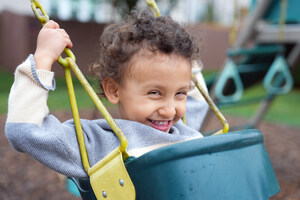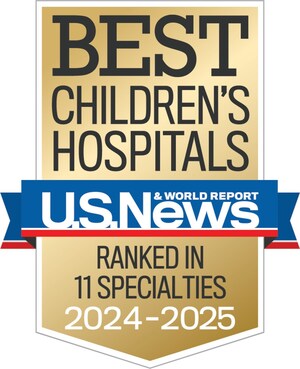CINCINNATI, Sept. 6, 2011 /PRNewswire-USNewswire/ -- The 10th anniversary of the Sept. 11, 2001 terrorist attacks may cause anxiety or stress for many Americans, especially those who witnessed the destruction first hand or who lost a loved one. The anniversary of the attacks may also cause anxiety for other children who have experienced other losses or stressors in their lives, even if unrelated to the events of 9/11. During this time, it's likely that the news media will show many images of the attacks, which could trigger difficult emotions for some children and adults alike.
(Logo: http://photos.prnewswire.com/prnh/20110406/MM79025LOGO )
Adults often do not know how to talk with children about the way the children are feeling related to these events.
David Schonfeld, M.D., Director, Division of Developmental and Behavioral Pediatrics at Cincinnati Children's Hospital Medical Center and Director, National Center for School Crisis and Bereavement and Robin Gurwitch, Ph.D., Program Coordinator, National School Crisis and Bereavement, Cincinnati Children's Hospital Medical Center give the following tips on what adults can do as the anniversary of 9/11 approaches and how adults can talk to children about the anniversary.
- Limit children's exposure to media (e.g., television, internet, social media, radio and print).
- The likely media coverage and discussion in schools and communities will result in a number of grief triggers for some children. Parents, teachers, and other adults should put into place strategies for dealing with such triggers, such as setting up a plan about a safe place they can go to if they unexpectedly become overwhelmed.
- Take the first step and start the conversation with children about the 9/11 attacks. Adults should ask children about worries and concerns that they may have and they should listen to their concerns. Adults often worry that bringing up the topic will upset children, but all children will have heard about the events of 9/11, even if they were not alive at the time of the attacks. Not talking about it makes children struggle to come to an understanding and to adjust alone without further information or support.
- Offer sincerity, patience and extra attention when the children express their concerns.
- Adults should offer their own thoughts and feelings when talking to children about the events of 9/11, including strategies they have found effective to cope with distressing feelings or worries.
- Adults should teach diversity, respect and tolerance. Remind children that just because one group of people committed a terrorist attack, it doesn't mean that every person of a different ethnic group, religious group or country would do the same thing.
- Encourage children to help with a project that will demonstrate support to the military who are currently working to protect the U.S. from another terrorist attack, or some other means of providing service to others, even if unrelated to the events of 9/11. Children, just like adults, feel better when they are able to help others. Make sure that what is selected is appropriate to the children's developmental level and personally meaningful – let the children select what they would like to do.
- Support children who want to commemorate the anniversary of 9/11 by attending a memorial service or by providing community service.
For more information about how adults can talk to children about the anniversary of 9/11, please visit the American Psychological Association's web site at www.apa.org.
ABOUT NATIONAL CENTER FOR SCHOOL CRISIS AND BEREAVEMENT
The National Center for School Crisis and Bereavement (NCSCB) was established in 2005 with funding from the September 11th Children's Fund and National Philanthropic Trust and now partially supported with funding from the New York Life Foundation. The goal of NCSCB is to promote an appreciation of the role schools can serve to support students, staff, and families at times of crisis and loss; enhance the training of individuals in school-related professional education programs in the areas of crisis and loss; collaborate with professional organizations, agencies, and community groups to further help students, staff, and families at times of crisis and loss; and serve as a resource for information, training materials, consultation, and technical assistance. To learn more about NCSCB, visit: www.cincinnatichildrens.org/school-crisis.
ABOUT CINCINNATI CHILDREN'S HOSPITAL MEDICAL CENTER
Cincinnati Children's Hospital Medical Center ranks third in the nation among all Honor Roll hospitals in U.S. News and World Report's 2011 Best Children's Hospitals ranking. It is ranked #1 for gastroenterology and in the top 10 for all pediatric specialties - a distinction shared by only two other pediatric hospitals in the United States. Cincinnati Children's is one of the top two recipients of pediatric research grants from the National Institutes of Health. It is internationally recognized for improving child health and transforming delivery of care through fully integrated, globally recognized research, education and innovation. Additional information can be found at www.cincinnatichildrens.org.
SOURCE Cincinnati Children's Hospital Medical Center
WANT YOUR COMPANY'S NEWS FEATURED ON PRNEWSWIRE.COM?
Newsrooms &
Influencers
Digital Media
Outlets
Journalists
Opted In






Share this article